Baghdad Behind Walls
Walls have become ubiquitous in Baghdad, a place where barricades keep militias from one another and hungry shoppers from the nearest kebab. As Iraqis struggle with sovereignty, the barriers are a constant reminder of the American military occupation.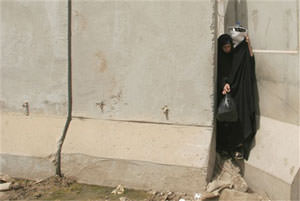
BAGHDAD — The busy Dora Market, fabled for its cheap clothes, kebab stalls, vegetables and fish fresh from the muddy waters of the Tigris River, is an embodiment of revival in Baghdad as the city recovers from years of sectarian strife. Men mill freshly slaughtered lamb in manual cast-iron grinders on iron stalls that choke narrow alleyways and sell pickled vegetables from large plastic tubs, and women peddle spices and fruit. Shoppers navigate past grapes oozing juice and piles of kitchen utensils imported from Syria and Iran, and boys push heavy carts laden with fresh herbs and hawk sweet tea in delicate glasses.
But people driving past the market on a four-lane highway cannot see any of the bustling trade from the road. Instead, they see a row of concrete barriers that surround the market. Like most of Baghdad, Dora, a predominantly Sunni, middle-class district of 450,000 people, is a maze of 12-foot-high walls that American forces have erected to quell the sectarian strife that afflicted the city from 2005 until early 2008.
In a sign that the people of Dora, which a year ago was a hotbed of Sunni extremist militias associated with al-Qaida, no longer feel threatened by sectarian militias, shop owners at the market are requesting that the Americans remove the wall that blocks their stalls from view from the highway.
“There was a reason once for these barriers, a security reason, but now it’s gone, so why not remove them?” asked Samir Ibrahim, who sells fresh kebab sandwiches from a rickety stall about 30 yards inside the wall. His business partner, Abdul-Rahman Shillah, pointed to a row of shuttered shops that face the wall. “This side used to be all restaurants. Now they are closed — nobody sees them from the road, nobody goes there,” Shillah said.
Some American soldiers agree.
“We need to move back those nasty T-walls,” said Capt. Emiliano Tellado, who handles a lot of reconstruction projects in Dora for the 2-4 Infantry Battalion of the Fourth Brigade, 10th Mountain Division. “Yeah, we’re not going to be as secure as we used to be. But in order to stimulate economic development, we have to make a compromise.”
However, American forces are not removing the barriers just yet, fearing for the security of the shoppers and vendors at the market.
The fate of the T-walls, as American troops call the barriers, is connected to the much larger question of Iraqi sovereignty, for the American combat presence here is ostensibly balanced against an independently functioning Iraq.
“Most of the complaints that we’re hearing have to do with inconvenience,” said Lt. Greg Garhart, one of the 2-4 soldiers who patrol Dora. Having the barriers in place “closes [people] off to an extent, but it also makes it safer.”
When the first walls went up in Baghdad, American and Iraqi security officials touted the gated communities inside as models for reconciliation and reconstruction in the rest of Baghdad, much of which is ravaged by sectarian violence that reached its peak in the city last year. In Saidiyah, a religiously mixed neighborhood a dozen blocks west of the Dora Market, sectarian violence ceased after American troops enclosed the area with 77,000 concrete barriers, leaving one entrance and one exit.
But even in Saidiyah, the walls are getting mixed reviews.
Residents complain that when they return to their neighborhood, they have to wait for two hours in the blistering sun to get past the checkpoint manned by Iraqi forces. Shop owners who sold flowers from a row of nurseries on the western border of Saidiyah complain that the barriers have cut off entrance to their shops, leaving their households without stable sources of income.
Apart from such inconveniences, the barriers, some Iraqis say, are psychologically oppressive.
“They give an impression of fear,” said Safa Hussieni, a young doctor who lives in central Baghdad. The Americans, he said, “have to decrease their number.”
Your support matters…Independent journalism is under threat and overshadowed by heavily funded mainstream media.
You can help level the playing field. Become a member.
Your tax-deductible contribution keeps us digging beneath the headlines to give you thought-provoking, investigative reporting and analysis that unearths what's really happening- without compromise.
Give today to support our courageous, independent journalists.
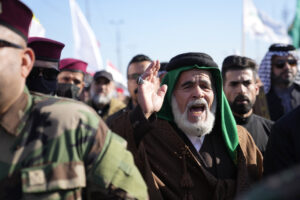
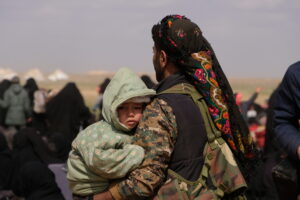
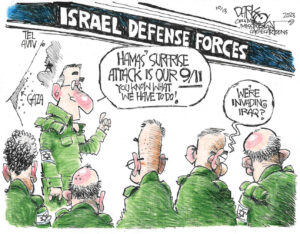

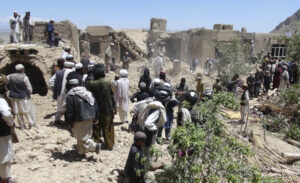
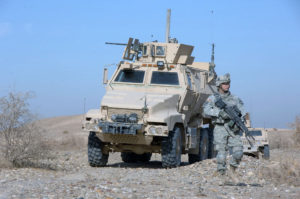
You need to be a supporter to comment.
There are currently no responses to this article.
Be the first to respond.